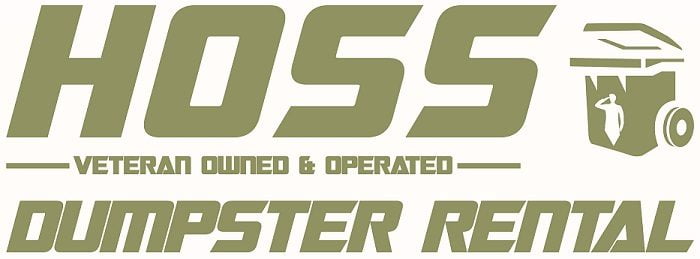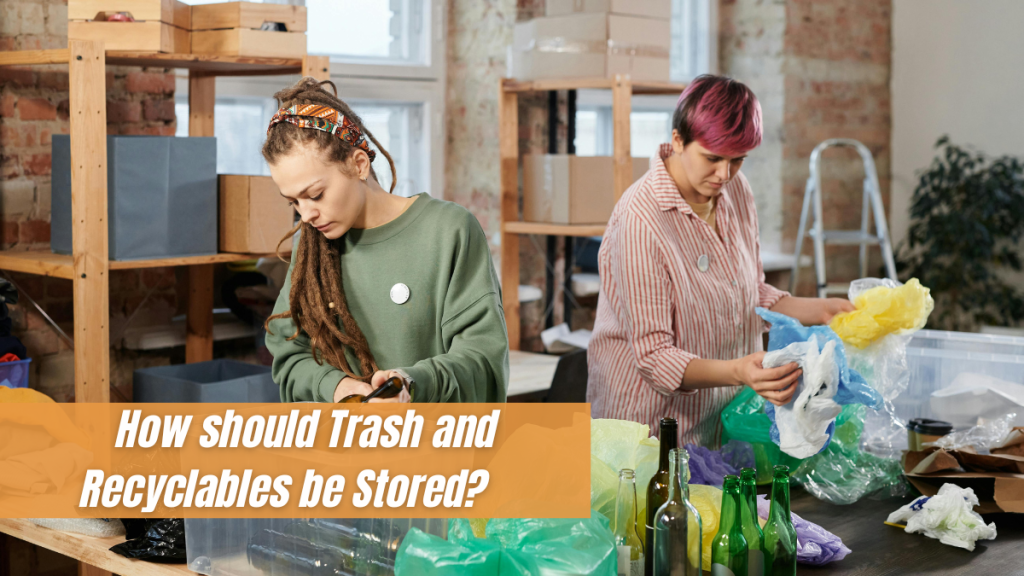How Should Trash and Recyclables Be Stored?
How Should Trash and Recyclables Be Stored? A Guide for Homeowners and Businesses
Properly storing trash and recyclables is essential not only for maintaining a clean and organized environment but also for reducing your environmental footprint. Whether you’re a homeowner or a business owner, understanding how to store your waste and recycling can have a significant impact on the efficiency of your waste management and the health of your community.
At Hoss Junk, a junk removal company based in Tacoma, WA, we frequently get questions from our customers about the best ways to handle their waste. Below, we’ll explore best practices for storing trash and recyclables at both homes and businesses to help you stay organized, reduce odors, and comply with local regulations.
Why Proper Storage of Trash and Recyclables is Important
-
Prevents Pests and Odors
Improperly stored trash can attract rodents, insects, and other pests. Overflowing bins or trash bags left out in the open can emit unpleasant odors, creating an unhealthy environment. Proper storage minimizes these risks, ensuring your space stays clean and hygienic. -
Environmental Impact
When recyclables are not properly separated, they may end up in landfills instead of being recycled. Proper storage makes it easier to sort materials and reduce waste. This not only benefits the environment but also can save you money on waste disposal fees, as some municipalities offer discounts for those who recycle properly. -
Compliance with Local Regulations
Different cities and municipalities have specific rules on waste management, especially for recyclables. Storing trash and recyclables properly helps you comply with local waste management guidelines and avoid fines or penalties. -
Aesthetic Appeal
Whether you are storing waste at home or for a business, a cluttered trash storage area is not only unsightly but can negatively affect the surrounding environment. Proper waste storage makes your space look cleaner and more organized, whether it’s in your backyard, garage, or business premises.
Best Practices for Storing Trash and Recyclables
1. Use Separate Containers for Trash and Recyclables
One of the most important aspects of waste management is separating recyclables from general trash. Not only does this make it easier to recycle, but it also prevents contamination, which can render recyclables non-recyclable.
-
Trash: General waste should be stored in sturdy, secure trash cans with tight-fitting lids to prevent odors and pests. Opt for trash bins with wheels for easy transport to the curb or collection point.
-
Recyclables: Make sure you have designated containers for recyclables. These containers should be clearly labeled to avoid confusion between recyclables and regular trash. Many recycling programs accept a wide range of materials like paper, plastic, and metal. However, each area may have specific rules, so always check local guidelines.
2. Ensure Containers Are Easily Accessible
Accessibility is key when it comes to trash and recycling storage. Ideally, trash and recyclables should be stored in a location that is easy for both residents or employees to access and for waste collectors to retrieve.
-
At Home: If you store trash and recyclables outside, place the containers in a designated, covered area, such as a shed or a screened-off part of your yard. This keeps trash out of sight and minimizes exposure to the elements.
-
For Businesses: Commercial properties should have a clearly marked and convenient location for waste and recycling containers. Depending on the size of your business, you may need multiple bins, including separate containers for organic waste (composting), trash, and recyclables.
3. Avoid Overflowing Bins
Overflowing bins are not only messy but can create environmental hazards. Trash bags left beside bins can scatter in the wind, leading to litter. To avoid this, always make sure your bins are the right size for the amount of waste your home or business generates.
-
Homeowners: If your trash bins regularly overflow, consider getting a larger bin or setting up a second one for recyclables. You can also schedule more frequent pickups if needed.
-
Businesses: It’s important to gauge your waste needs based on your business size and operations. If your company produces a high volume of waste or recyclables, it may be worth upgrading to commercial-sized containers or arranging for more frequent pickup services.
4. Keep Bins Clean and Dry
A dirty trash bin can attract pests, create bad odors, and even spread bacteria. To ensure your bins stay clean and dry, follow these tips:
-
Clean Bins Regularly: Use a hose and soap to rinse trash and recycling bins at least once a month, or more often if needed. If you store trash outside, consider adding a layer of newspaper or old cardboard at the bottom of your bins to absorb moisture and keep everything dry.
-
Keep the Lid Closed: Always keep your trash and recycling containers tightly sealed to prevent rainwater from getting inside. Moisture encourages the growth of bacteria and can cause compostable materials to decay prematurely, which could result in a smell.
5. Be Mindful of Recycling Contamination
Recycling contamination is one of the biggest problems facing waste management programs today. Contamination happens when non-recyclable items are mixed in with recyclables, making it difficult or impossible for recycling centers to process the materials. Here’s how to reduce contamination:
-
Rinse Recyclables: Ensure that recyclables like bottles, jars, and cans are clean before placing them in recycling bins. Residue from food or liquids can contaminate an entire load of recyclables.
-
Avoid Plastic Bags: Many recycling facilities do not accept plastic bags, which can clog machinery. Use reusable bins or containers instead of plastic bags when transporting recyclables.
-
Check Local Guidelines: Some areas accept certain materials, such as styrofoam, while others do not. Be sure to follow local guidelines to avoid contaminating the recycling stream.
6. Properly Store Organic Waste (Composting)
If you compost, organic waste should be stored separately from trash and recyclables. Compost bins should be kept in a dry, shaded area to avoid odor and attract pests.
-
Use Compostable Bags: Line your compost bin with compostable bags to keep it clean and minimize odor. Be sure to keep your compost bin in a cool, dry location away from your trash bins.
-
Aerate Regularly: Turn your compost regularly to help it break down quickly and prevent smells. This will keep your composting efforts running smoothly and prevent issues from arising.
Conclusion
Proper trash and recycling storage is a small effort that can lead to a significant impact, whether you’re a homeowner or a business owner. By following best practices such as separating waste into designated containers, keeping bins clean and dry, and adhering to local recycling guidelines, you contribute to a cleaner, healthier environment while making your space more organized and pest-free.
At Hoss Junk in Tacoma, WA, we’re dedicated to helping homeowners and businesses manage their waste responsibly. If you ever need assistance with junk removal or want to learn more about effective waste management, don’t hesitate to reach out to us. Proper waste storage is a small but vital step toward building a more sustainable future.

